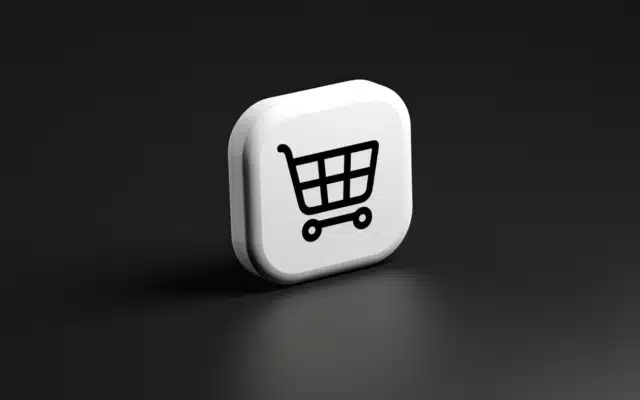In today’s competitive retail environment, integrating efficient software with your point of sale (POS) system is crucial for business excellence and success. Not without a reason, the global POS software market is picking up steam by showing steady growth.
According to Precendance Research, the global point-of-sale software market was worth $14,76 billion in 2024 and is projected to reach $41,53 billion by 2034. Sounds impressive, right? But why do many companies opt for POS integration?
The reason is pretty simple. Point of sale integration offers multiple features, enabling businesses to make more informed decisions and streamline operations while enhancing the customer experience. But how can you effectively choose system integrations to power up your retail business?
So, we’re here to answer this question and support you in future endeavors. Keep reading this post to discover how your business can benefit from POS integrations, what solutions to consider, and how to integrate them into your system.
What is a Point of Sale Integration?
A POS integration is a software app that connects seamlessly with your POS software, enhancing its capabilities and functionality. As a result, your point of sale can interact and share data with various business systems, such as inventory management, customer relationships, and e-commerce platforms.
The latest integrated POS systems offer the added advantage of compatibility with third-party services, ensuring even greater functionality. The possibilities with POS software are endless, from automated payments and better accounting management to valuable insights and data-driven decisions. We’ve just named a few. Now, let’s see what a POS platform can be suitable for your business.
How Does a POS Integration Work?
Think of it as a bridge. You connect your online store to your POS system through an API (that’s short for “application programming interface”). These APIs are usually built and maintained by third-party providers and come with a monthly subscription fee.
Getting started is pretty straightforward. You’ll need to add the POS integration as an add-on in your main system and bring in your product catalog, either by uploading a CSV file or letting the system pull it in automatically. Just keep in mind: the bigger your catalog, the longer the setup will take.
What Are the Must-Have POS Integrations for Growth?
In the market, available integrations are a dime a dozen. So, we recommend assessing them based on business functions and industry-specific needs. This approach helps narrow down relevant options that will contribute to business growth. Here are the key POS systems to consider for your company.
Payment processing
Integrating POS systems with payment apps is one of the most popular solutions. The main reason for this popularity is that a growing number of customers pay with credit cards, while the use of cash for payments steadily decreases.
The value of this POS feature is that it allows you to accept various payment methods, offering customers a choice between using cards and contactless payment. A POS system may feature built-in payment processing, use third-party integrations, or incorporate both options.
If your POS fails to have payment processing or the built-in option is costly, you should consider a payment processing integration. This POS integration can handle different payment methods like mobile pay, contactless NFC payments, subscriptions, loyalty rewards, and more.
Accounting software
Would you like to better understand your business’s overall cash flow? An accounting integration for your POS systems facilitates bookkeeping, providing you with relevant accounting data. Also, it can assist with sales, labor, payroll, profit, and loss management.
The strength of this point of sale integration lies in syncing and sharing information between your bookkeeping and accounting software. Plus, an accounting integration facilitates sending and managing invoices.
Inventory management
With inventory management integration, you can see a complete picture of your inventory across all channels. Plus, with this solution, you can create stock-keeping unit (SKU) numbers and barcodes as well as monitor stock levels, ensuring your inventory is always up-to-date.
POS with integrated inventory management is a good option for small businesses, providing them with better stock control capabilities. Additionally, with this integration, they can easily track their inventory movement across all channels. This is vital if sales are coming from multiple platforms.
An inventory management POS integration has many features your business can benefit from. These include managing online orders, creating shipping labels, tracking orders, and setting customized alerts. Finally, AI implementation can make your system more advanced, allowing for forecasting product demand.
Ecommerce
Statista predicts that in 2024, the ecommerce market could grow significantly, possibly reaching $5,307 billion by 2028. With an expected annual growth rate of 9.83%, it is crucial to integrate POS systems with your online store to manage multichannel sales effectively.
As an ecommerce model is an extension of your brick-and-mortar store, you need a point of sales integration to manage operations in one place. What’s more, it’s a good idea to integrate it with online stores to sync inventory, online and offline sales, payments, and customers.
At Forbes, we have an on-point story to share. Our client, Sharkmob, a top-tier game company, needed aid in building a store and integrating it into their system. They turned to us due to the lack of expertise in ecommerce POS integration.
That’s why our team built an internal management store, seamlessly incorporating it into their system. This was a great solution, freeing our client from dependency on third-party service providers.
Shipping and order fulfillment
If you integrate e-commerce POS systems, you need a shipping and fulfillment solution to manage your sales. This POS feature syncs all of your orders in a centralized database. So, you can handle your orders all in one place, minimizing stocking mix-ups.
This integration offers advanced functionalities like order and shipment tracking, real-time updates, and supplier management. With these capabilities, you can ensure on-time deliveries, keep things transparent, and boost customer satisfaction. Plus, point of sale integration with shipping and order fulfillment empowers you to maximize operational efficiency, manage inventory better, and cut down shipping costs.
Email marketing
Today, email marketing is a powerful channel for retailers to reach potential customers and extend their target audience. It’s also cost-effective because your investment in marketing can result in returns. Point of sale integrations with email marketing tools make it easier to grow your email list and send product recommendations, promotions, and updates.
It’s a good idea to consider such integrations into your system as automated email campaigns, advanced analytics, and personalization features that might boost your growth. Additionally, you can take advantage of list-management features, like segmenting and grouping your subscribers based on similar preferences.
Loyalty programs
Every retailer wants to retain their clients and give them a solid reason to return. So, POS integration with loyalty management software is a good option for building long-term relationships with customers through personalized promotions.
Customer loyalty programs reward shoppers for recurring purchases and referrals to their relatives and friends. For customers, this is a chance to save money by using bonuses from loyalty programs. For businesses, a loyalty program POS integration can help retain clients, track spending, and reward committed ones.
A third-party integration can inform you about which customers shop at your stores, who are regular clients, and who spends the most. You can track popular items, the volume of purchases, payment methods used, as well as returned products. This POS system arms you with this data, allowing you to make well-informed business decisions and offer better customer service.
Point of sale integrations described above are basic yet crucial business functions. We recommend prioritizing them because they can bring various benefits to your company. So now, let’s take a closer look at the core advantages of POS integration.
How Your Business Can Benefit from POS System Integrations?
Integrations for POS systems are not only a necessity but a game-changer, providing useful solutions and perks. Here are some of them:
- Real-time data. With a POS system integrate features, there is no need to track your performance manually. Most of the sales data tracking will be automatically done by the system, saving your effort for more strategic tasks. The best thing is that you can pull reports anytime and get a real-time picture of your sales across online and physical stores.
- Data-driven decisions. POS integration provides valuable insights based on data related to sales, inventory movement, and customer actions. As a result, you can use them for strategic decision-making. Additionally, you can identify top-selling products and adjust your sales strategy accordingly. So, integrated data analytics encourages companies to study the market, swiftly adapting to its trends.
- Improved customer experience. Today, customers want quick and personalized services. That’s where POS system integrations and customer relationship management tools come together, enabling you to offer exactly what they want. It speeds up checkouts and cuts down on wait times. Plus, integrated systems track what customers like and what they’ve bought before, assisting businesses in tailoring their offerings and enhancing customer experience.
- Streamlined operations. POS integration increases operational efficiency by automating sales processing and inventory updates. As a result, automation facilitates the daily workflows of your staff, allowing them to focus on more strategic tasks. For example, a cashier can process transactions faster, reducing wait times and increasing customer satisfaction.
- Direct customer engagement. POS integration is not only about improved customer engagement but also about directly engaging with the audience. With all your POS data, you can create targeted campaigns to reach potential clients with personalized offers and promotions. Plus, POS system integrations make customization more effective and manageable, especially if the system has built-in marketing features.
- Scalability and flexibility. POS systems are designed to grow with your business, whether you’re a small store or a big company. They ensure consistency and efficiency across all operations as you expand. So, no matter how fast you’re scaling, your POS integration remains effective and reliable.
How to Choose the Right POS Integration for Your Business
To choose relevant POS integrations, you should understand which software or tools your company may need to enhance its efficiency. Then, follow these simple steps to save time and achieve what you want.
Step: 1 Assess your business requirements
Before exploring different POS integrations, think about what your business requires. Focus on how many transactions you handle and any special features you should integrate, like e-commerce POS. Identify areas you would love to reinforce with technologies. This way, you can see how POS solutions might assist you.
Step 2: Select the most compatible POS integrations
You should look for integrations that align well with your business and existing tech stack. Therefore, we recommend making a list of solutions to analyze them separately and consider their pros and cons. Finally, evaluate and compare these platforms to see which ones are the most suitable for your business.
Step 3. Check user reviews
When considering specific POS integrations, study both positive and negative user reviews. You should pay attention to users’ comments about how easy it is to integrate and use the system. Also, we advise comparing prices and requesting a demo version to see how it fits with your current systems.
Step 4: Request demos and trials
Once you’ve selected the right tech for your business, request free trials to test the software with your system before making a final decision. This allows you to try out the software and assess its usability, functionality, and compatibility with your POS integration.
Final Thoughts
POS integrations are one of the most powerful solutions for your business. Integration systems can help you automate tasks, extend your target audience, and streamline efficiency. So, stay open to experiments and consider supercharging your POS with multiple features. POS integration links give you even more flexibility to connect tools and features. So, stay open to experiments and consider supercharging your POS with multiple features.
At Forbytes, we provide POS integration services, covering diverse business needs. Our team can consult and guide you to opt for integrations that meet your business requirements. We provide a combination of POS software solutions, enabling a unified payment flow across in-store and online channels. Contact our experts to discuss POS solutions and select the most relevant options for your business.













